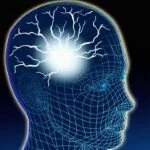 |
Find Your Medication |


Yale uses biochemistry in an attempt to combat depression
Scientists focused on the physical aspects of depression, such as brain synapses associated with mood regulation.
A study from Yale University may prove to be a precursor for innovative new treatments for individuals such as those who buy Effexor or buy Paxil at Canadian and international pharmacies to balance out their clinical depression. Scientists focused on the physical aspects of depression, such as brain synapses associated with mood regulation. They also checked into the ability of antidepressants to provide positive effects on the brain structure, alongside their mitigating effects on neurochemistry. Ultimately, they found a specific protein called FGF2 that can promote the production of naturally occurring, nerve cell-expanding glial cells and hamper the reduction of these cells that results from chronic stress. In order to conduct the study published in the journal Biological Psychiatry, the researchers found ways to stimulate depression in laboratory rodents. Eventually, it was found that FGF2 infusion brought back the glial cells that the rodents lost when they became depressed. The data also show that antidepressants can enhance glial cell production. "The deeper that science digs into the biology underlying antidepressant action, the more complex it becomes. Yet understanding this complexity increases the power of the science, suggesting reasons for the limitations of antidepressant treatment and pointing to novel approaches to the treatment of depression," said John Krystal, chairman of the Department of Psychiatry at Yale University School of Medicine. The U.S. National Library of Medicine (NLM) describes depression as a condition where sadness, anger or frustration interfere with a person's ability to go about their everyday life. Although the NLM says brain chemicals play a role in the onset of depression, other potential contributing factors could include alcohol and drug abuse, stressful life events, sleeping problems and medications such as steroids. |
See also ...
- New study suggests Tamoxifen treatment should be extended to 10 years
- Aspirin could slow age-related cognitive decline in women
- Antidepressant may also reduce menopausal symptoms
- Depression causes widespread work absences, studies find
- Paxil may help prevent heart failure
- Melatonin and exercise shown to reduce Alzheimer's symptoms in mice
- New schizophrenia treatment canceled due to poor results
- New osteoporosis treatment successful in mice, study says
- Scientists say creating an anti-heart disease vaccine could be possible
- Research shows progress toward creating Alzheimer's blood test
- New drug cocktail cures coke addiction in lab rats
- Algae extract may improve cholesterol levels
- There are as many undiscovered drugs as stars in the sky, researchers say
- Researchers develop new test for osteoporosis
- Statin medications may reduce the size of men's prostates
- Researchers find process that leads to development of arthritic condition
- Researchers find new treatment that may quell joint swelling
- Researchers develop new treatment for enlarged prostate
- New study shows antidepressants can alleviate arthritis pain
- Study uses stem cells to treat osteoporosis
- Statins equally as effective in women as men
- Blood sugar monitoring shows little benefit
- Use of cane reduces arthritic knee pain
- Researchers explain how statins may fight breast cancer
- Study pinpoints genetic sign of osteoarthritis
- Researcher talks arthritis cure
- Broad approach of new drug may prevent progression of Alzheimer's
- New osteoporosis medication fails in clinical trial
- Second biopsy may determine efficacy of breast cancer treatments
- New study confirms benefits of Lipitor
- Researchers find why some women are resistant to Tamoxifen
- Researchers work toward new drug to treat BPH
- Researchers discover source of inflammation that leads to arthritis
- Aggressive blood sugar control may provide no benefit for diabetics
- Researchers uncover process that potentially causes arthritis
- Bipolar disorder and schizophrenia share many brain similarities
- Researchers make important finding in drug-resistant breast cancer
- Study findings medication improve BPH symptoms
- Treating acid reflux is possible
- Researchers say treatment for acid reflux is effective
- South Asians are more likely to develop obesity-related health conditions like diabetes, study finds
- Aggressively lowering blood sugar may have few benefits for diabetics
- Stem cell therapy may be the future of osteoporosis treatment
- Controlling acid reflux shown to benefit patients with lung condition
- Traditional remedies show little improvement for arthritis
| IMPORTANT DISCLOSURE: All medical content and news articles on this website is supplied by an independent third party company. While the information can be useful, this website relies on others for its creation and cannot guarantee the accuracy, medical efficacy, or reliability of the information provided. In all circumstances, you should always seek the advice of your physician and/or other qualified health professional(s) for drug, medical condition, or treatment advice. This website does not provide any medical advice. The content provided on this website is not a substitute for professional medical advice, diagnosis or treatment. |
- Terms & Conditions
- |
- Privacy Policy
- |
- Shipping Policy
- |
- My Account
- |
- Refill Prescription
- |
- Product Search
- |
- How to Order
- |
- Customer Service
- |
- About Us








